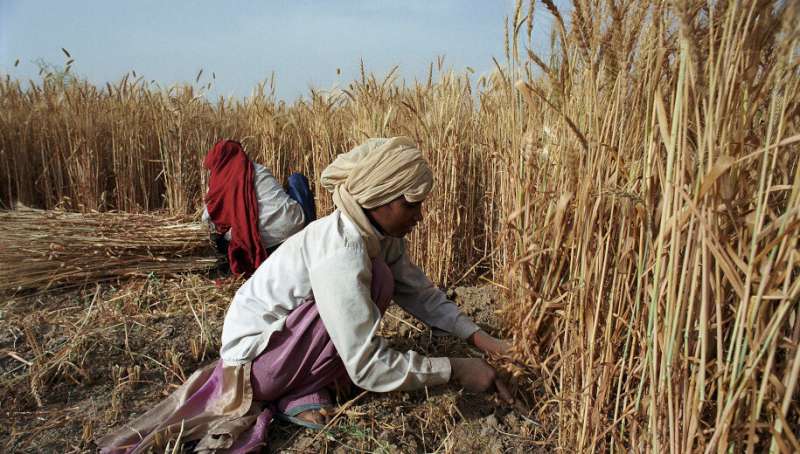Climate-smart crop rotation works for Gangetic plains

Climate-smart agriculture practices such as research-backed crop rotation, along with precise water and nutrient management, can safely and significantly suppress weeds that decrease cereal productivity, says a new study.
Published on 5 August in Scientific Reports, the study recommends maize–wheat–mungbean rotation as a promising climate smart alternative to the conventional rice–wheat system for better weed management in the north-western Indo-Gangetic Plains—among the world's most intensively farmed areas.
Hanuman S. Jat, lead author of the study and principal scientist at the Central Soil Salinity Research Institute, Karnal, India, says continued cultivation using the same cropping system for the last five decades allowed certain weed species likePhalaris minorto strongly establish their presence and adversely affect absorption of light, water and nutrients.
"Weed infestation negatively influences wheat production, particularly under conventional wheat management systems. It also gains resistance against numerous common herbicides and makes chemical control less reliable," Jat tells SciDev.Net.
The Food and Agriculture Organization of the United Nations estimates that weeds cause a 10 percent loss in crop yields overall, with the loss in cereals amounting to 200 million tons. Losses can reach 30 percent in developing or emerging countries.
A study published in May had also focused on the value of crop diversification to reduce weed density. "The best strategy for developing a resilient and sustainable production system is adopting diversified farming with ecological weed management options.
One study estimates yield losses in India due to weeds in grain crops at US$11 billion. However, farmers are reluctant to adopt a diversified cropping system because of the requirement of varying skill sets and higher initial investment.
S.K. Suresh, agricultural scientist and managing director of the Kerala State Farming Corporation, says that continuous mono-cropping with the rice-wheat system would help weeds to grow rapidly. He tells SciDev.Net: "Weeds use the nutrients provided to the main crop and sometimes dominate the main crop. Some weeds are noxious and harmful for both humans as well as animals. Studies show that herbicides used to control weeds have many ill-effects on the soil and water, besides polluting the environment."
An earlier study said that continuous mono-cropping of rice-wheat system with conventional tillage-based management practices have led to decline in soil health, groundwater table and farmers' profit in north-west India.
Farmers are reluctant to introduce crop rotation for better weed management because they see it as financially risky. R. Sreedharan Pillai, a small-scale farmer in Kollam district, Kerala state, says that farmers are "more likely to agree to implement crop rotation systems if the government provides guarantees or subsidies."
More information: Hanuman S. Jat et al, Climate-smart agriculture practices influence weed density and diversity in cereal-based agri-food systems of western Indo-Gangetic plains, Scientific Reports (2021). DOI: 10.1038/s41598-021-95445-1
Journal information: Scientific Reports
Provided by SciDev.Net




















